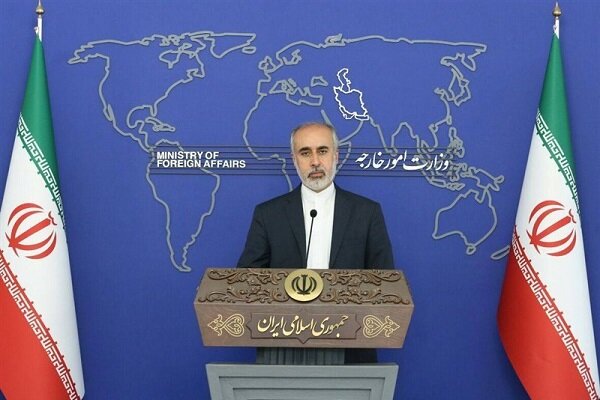Qatar hosted indirect talks between the US and Iran last month in an effort to revive the nuclear accord.
Iran said it will it will not be hurried into a reaching a “quick” deal with the US as negotiators continue attempts to revive the 2015 accord, Tehran’s foreign ministry spokesman Nasser Kanaani told the press on Monday.
“They demand that Iran makes a quick decision, (insisting that) time is limited and Iran must respond quickly,” said Kanaani during his weekly press briefing.
The Iranian official said his country has been placed under “psychological pressure and unilateral expectations”. Kanaani also said Iran has been flexible throughout nuclear negotiations, saying an agreement is close if the US acts “constructively”.
“Iran has been very flexible in negotiations and has presented various constructive initiatives. We think that if the US acts constructively and in good faith as Iran, and reacts positively to Iran’s positive initiatives, we are close to an agreement,” said Kanaani.
The Iranian diplomat added that Tehran remains “faithful to the process of the talks” and will maintain this outlook until it reaches “a strong agreement”.
Kanaani claimed “Iran acts neither hastily nor emotionally and the talks are in progress through the communication channels”.
The Iranian official also told the press that Qatar and Oman announced some initiatives in an effort to restore the 2015 nuclear deal, without providing further details.
Qatar hosted indirect talks between the US and Iran last month in an effort to revive the nuclear accord, technically known as the Joint Comprehensive Plan of Action (JCPOA).
This came a year after talks pushing for the restoration of the accord kicked off in Vienna, with the participation of the P4+1—the UK, France, China, Russia plus Germany.
However, the latest rounds of talks yielded no results as Iran continues to demand the lifting of crippling economic sanctions imposed by the US.
On Thursday and Friday, Iran’s Foreign Minister Hossein Amirabdollahian held a phone call with his Qatari counterpart Sheikh Mohammed bin Abdulrahman Al Thani.
During the first phone call, Amirabdollahian said Tehran “has the will to reach a good, strong and sustainable agreement”, calling on Washington to have realistic demands.
Meanwhile, Qatar’s Ministry of Foreign Affairs (MOFA) said that Sheikh Mohammed renewed his country’s support to the talks during the second phone call.
“Deputy Prime Minister and Minister of Foreign Affairs affirmed, during the call, that the State of Qatar seeks to support the parties of the talks to revive the nuclear deal to reach a fair agreement for all, taking into account the concerns of all parties,” said MOFA.
On Saturday, French President Emmanuel Macron spoke to his Iranian counterpart Ebrahim Raisi over the nuclear talks. According to Reuters, the French leader expressed his disappointment in the talks’ lack of process.
Macron noted that while an outcome is still possible, it should be reached “as soon as possible”.
Nuclear watchdog
In another development, Iran reportedly said on Monday that it will keep the 27 cameras belonging to the International Atomic Energy Agency’s (IAEA), the UN’s nuclear watchdog, switched off until a deal is reached.
“We will not turn on the IAEA cameras until the other side returns to the nuclear deal,” Iranian nuclear chief Mohammad Eslami said as quoted by Reuters.
This came after Kanaani also accused the IAEA’s Chief Rafael Grossi of holding “unprofessional, unfair and unconstructive views” on the country’s nuclear programme.
While the US unilaterally stepped out of the JCPOA in 2018, it has accused Iran of breaching the deal by ramping up its efforts to develop a nuclear weapon.
Last year, Tehran enriched its uranium at 60% in response to a series of attacks on its nuclear sites, including the Natanz facility. The blame was pointed at Israel for its opposition to the revival of the JCPOA.
Israel’s claims over Iran’s development of a nuclear weapon have been repeated consistently in recent decades.
However, the Islamic Republic maintains that the enrichment is to manufacture radiopharmaceuticals, rejecting claims of developing a nuclear weapon.







